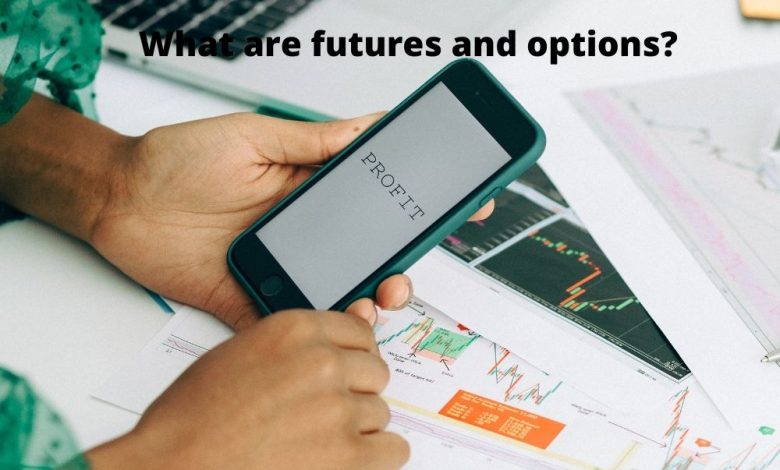
Futures and options are principle types of financial stock derivatives and are used while trading in the share market. They are like a future contract or agreement signed between two parties for buying and purchasing an asset at a predefined price but on a later date.
These agreements try to eliminate the risk involved in stock market trading by deciding the value beforehand.
They acquire their value from the underlying asset in the stock market. This asset can be share market indices, shares, ETFs, commodities and many more. In the stock market, one can set a predetermined price to avoid future risk; but still, it isn’t easy to predict price movement, and this can cause substantial losses and profits if the prediction goes wrong.
Thus, individuals who are experienced and well versed in the stock market operation typically participate in these kinds of stock trades.
Investors practice futures and options trading on leverages. It is a stipulated percentage of the aggregate contract value provided by the trader. With this trader can enter any trade without paying the huge amount assigned with the share or stock. For this, one needs to keep a minimum amount or mark to market value in his account before starting. It helps in increasing the profit margin of traders substantially.
More about futures:
There are three fixed periods in futures trading:
1) Current Month contract
2) Near month contract
3) Far month contract
All future agreements expire on the last Thursday of the month. Here month refers to the expiry month of the contract.
Difference between Futures and Options
The point wise difference between futures and options are as follows:
Definition–
- Futures: Future is a contract in which both buyer and seller agree to buy or sale on a predefined date at a fixed price.
- Options: It is an agreement in which the trader gets the right to sell or purchase the financial token at a fixed price with no time boundation.
So the significant difference is that Future contracts are binding, once signed by an individual, he cannot deny paying on the expiry date. Whereas, if one thinks that deal is not profitable, he can refuse to buy shares on the expiry date in case of options.
The obligation of buyer–
In futures, there is an obligation to execute the contract whereas in options no such requirement applies.
Risk factor–
Futures are riskier than the options for the seller as well as the buyer of futures. In case of options, this risk is limited to the premium amount paid.
Advance payments–
In futures, one has to pay only breakage amount apart from this amount no advance payment needed whereas, in options, one needs to pay a small premium amount before activation of the contract.
Degree of profit and loss–
There are no limits on profit and loss in futures, but in options, there is limited loss with unlimited gain.
Usage–
Both futures and options are widely used for speculation and hedging on the market such as commodity, stocks, currency, stock indices etc.
Closing the contract-
One can close the deal or agreement by paying or delivering the price differential or by gaining an offsetting position, in both futures and options.
Obligation to performance–
It is for both individuals in case of futures, and in case of options, it is just for option writers.
Settlement–
Traders make daily settlements in futures. In options, writers of contract gather premium on the next day of the trading day.
Derivative–
Future shows linear payoff, whereas in options price is always positive.
Types of Futures and Options:
The rules for buyers and sellers of the futures contract are the same. For options, these rules are different for both parties.
One has to sign a put option contract if he wants to enter a trade to sell a particular commodity or asset at a pre-asserted price in future time. Similarly, if one wants to purchase a specific product or asset in future, he has to sign a call option contract to lock the exchange price in future.
Final words
Futures and options trading seems simple, but they are equally risky. Prediction of the correct price movement is essential. Go through various fundamentals like underlying assets, issuing organization, stock market, etc., before entering derivative trading.
Once the foundation is ready, you can avail the unlimited profit advantage of futures and options.
If you are a novice and searching for the best broker for trading in futures, then T1markets is the best option. They provide trading service with zero commission fee. They also have advanced tools which display real-time stock information.





